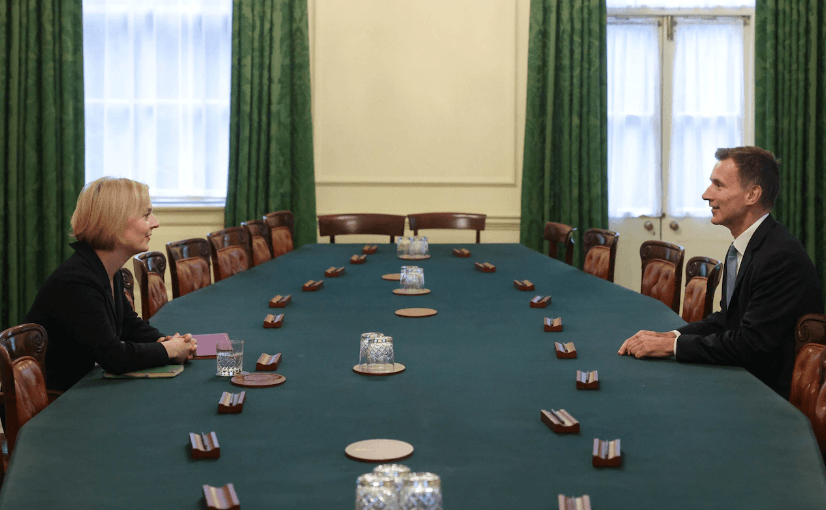Net Zero: doubling down on stupid
News & Social Media / Post
There is no growth without affordable energy

Most of my thinking lately dwells on the impossibility of Net Zero. Green energy lobbyists have ramped up the propaganda in recent months, doing all they can to obscure the reality of Net Zero. There are now endless debates as to the true cost of wind energy. Carbon Brief is pushing the line that wind energy is “nine times cheaper”.
Andrew Montford of Net Zero Watch has a crack at this dodgy number. Montford’s analysis is often quite good. Personally I think the argument needs to be reframed. Costing energy is an imprecise science because it's fraught with complexity. The slam dunk argument against wind energy is when we frame it as intermittent versus dispatchable energy.
I argue that the cost of building and operating windmills is not a standalone figure. We must also consider the cost of grid balancing and the various energy storage technologies. Energy storage is in its infancy. It is not cheap. It is not going to get cheaper any time soon. In all probability it’s going to remain a pricey affair for decades to come. There will be shortages of lithium and battery grade nickel in the next five to ten years, leading to production and supply chain problems.
In the interim gas power stations are doing the heavy lifting of grid balancing and wind backup. It wasn’t cheap before the war in Ukraine and it’s not cheap now. Moreover, as we’ve dismantled our conventional power generation, we’ve lost a great deal of spinning reserve for short term grid balancing so we’re now having to build standalone flywheels – simulating the spinning metal mass of a power station turbine. The demonstrator is set to cost £25m. The more intermittent energy we add the more it destabilises the grid so we could end up needing dozens of these contraptions.
Elsewhere the renewables sector is looking at conversion of surplus wind energy (at times of low demand) into hydrogen which would then be piped to gas stations and converted into methane. Again, this is not past the demonstrator phase, so we have no real world data on costs and conversion losses. One analysis has it that the technology to convert power to hydrogen and back to power has a round-trip efficiency of 18%-46%.
A more technical paper , assessing German research, concludes that the balancing of fluctuations of renewable energy though green hydrogen seems feasible only up to a level of several GWh per day. “However, the German government’s idea of replacing a significant share of conventionally produced electric energy in the order of TWh with hydrogen does not stand up to scientific analysis”. In short, there is no current cost effective technology capable of mitigating intermittency caused by wind and solar.
But then we are reminded that the big vision behind Net Zero is that the grid will be balanced by all the electric cars we’re going to buy. I need not list the many impracticalities of EVs, but the point stands that there simply isn’t enough generation and transmission capacity to sustain the current uptake of EVs, nor the street level power infrastructure to cope with them. V2G is decades away if it ever happens at all.
The debate, therefore, is less a matter of what each respective technology is likely to cost. It may well be that we’re throwing good money after bad, to the tune hundred of billions, perhaps even trillions, for a system that isn’t going to work. The grand Net Zero vision more resembles a Rube Goldberg machine. It is argued that this pioneering and innovative dash for green technologies will bring about a green revolution, creating millions of jobs. Only it will do no such thing. Wind, solar and battery makers are scaling back their production citing high energy costs, and this week we learn that BMW Mini is to shift its EV production to China, and Britishvolt, a major battery manufacturing startup, is on the brink of collapse.
Since battery storage, V2G and hydrogen are not going to make a meaningful impact, and will certainly never be able to plug the days and weeks of wind shortfalls, gas will be doing job of wind back up for as long as it takes for windmills to fall out of fashion. Net Zeroists will argue that wind reduces our dependency on gas, but however many GW of wind capacity we add, not a single CCGT station can be decommissioned. We’ll just be paying for them to stand idle for much of the year. An externality of wind which must be added to the cost of intermittent energy.
As it happens, the expansion of the wind fleet has stalled. As we noted recently, much of the existing fleet is quite old now, and the rate of decommissioning will outpace new installations. Meanwhile, some £54 billion has to be found to connect new capacity to the grid. Meanwhile the grid has to solve the more urgent problem of keeping the lights on in the decade to come. Policy makers will have to choose between Net Zero adventurism and reality. There isn’t enough investment capital to address both.
There is then the elephant in the room. As we’ve often noted, the transition to Net Zero is a transition to a mineral intensive energy system/. we’re looking at a sixfold increase in the consumption of rare earth minerals and metals. Environmentalists are starting to notice that this involves large scale open cast mining and increasing our dependency on China, just as Western politicians are deciding China is the new geopolitical bogeyman.
Net Zero fails when you problem it from any angle. It is not sustainable. It is not green. It is not cheap. It is not going to kickstart growth. It’s going to make energy more expensive, deindustrialise the West, and demote our energy system to third world levels of reliability. Even the Lords environment and climate change committee has said the government is relying too much on “yet to be proven technological fixes”. Sir Patrick Vallance, the government’s chief scientific adviser, said: “Dreaming that something brand new will appear and save us by 2050 is not sensible”. We would be far less diplomatic. The word moronic leaps to mind.
Instead the Committee urges a focus on “behaviour change” which entails yet another layer of expensive gadgetry such as smart meters to tell us when we can use our washing machines or charge our cars. Not only are we to be priced ourt of our current lifestyles, we will in effect be living in a climate lockdown to flatten the energy demand curve. For this there is no mandate and we don’t get a say.
The debate over the last fortnight has been over whether tinkering with tax rates will grow the economy. We would suggest that it’s not going to make the slightest difference unless we get energy costs under control and stop wasting billions on green fantasies. The Wesminster cartel is in lockstep over this issue. Truss has climbed down from “Trussonomics” and will no doubt be bullied into doubling down on Net Zero. Thus, there is no salvation to be had. Regardless of the economic and practical realities of Net Zero, they’re steering the ship directly into the iceberg. If you’re daft enough to keep voting for them, you deserve what’s coming.
Recent National News











